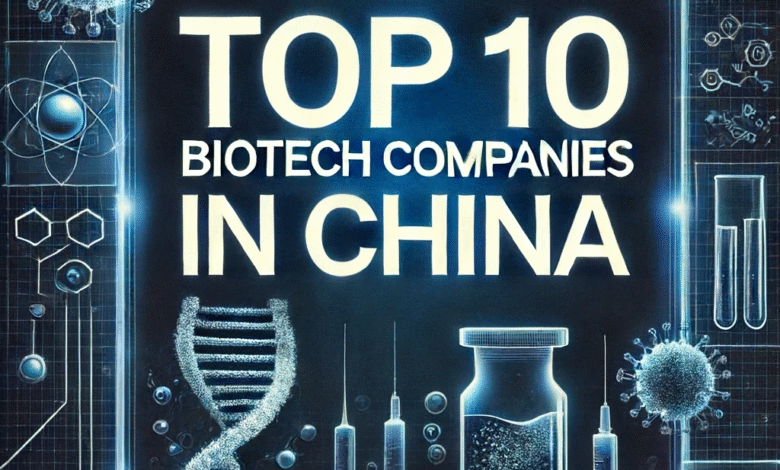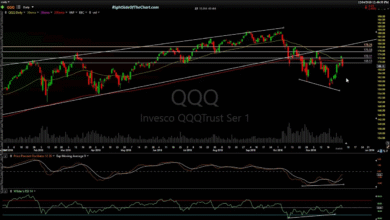China Biotechnology Advances: Overtaking the US Soon?

China biotechnology advances have emerged as a crucial focal point in global innovation, outpacing traditional leaders and reshaping the landscape of the biotech industry. Recent reports from the Harvard Belfer Center indicate that China may soon surpass the United States in biotechnology, particularly due to rapid developments in drug and agricultural sectors. This shift not only highlights the strengths of China’s regulatory environment and robust talent pool but also raises concerns about the U.S.’s ability to maintain its competitive edge. As the two nations vie for leadership, the differences in biotech patents and investment strategies become increasingly apparent. Furthermore, the incorporation of AI in biotechnology is expected to revolutionize research and development processes, adding another layer to the U.S.-China biotech comparison.
The evolution of biotechnology in China represents a momentous shift in the global tech industry, often highlighted by significant breakthroughs in healthcare and agricultural advancements. This sector, which encapsulates everything from genetic engineering to bioinformatics, is now at the forefront of international competition between China and the U.S. As China’s biotech scene matures, characterized by a surge in innovation and patent acquisitions, many industry experts emphasize its unparalleled capacity to leverage artificial intelligence for transformative results. The competitive dynamics are further complicated by historical comparisons with American biotechnology, where regulatory processes and research funding strategies diverge sharply. Thus, as the Chinese biotech domain expands, its implications for global markets and technological partnerships become profound.
The Rise of China’s Biotech Industry
China’s biotech industry has seen remarkable growth over the last decade, driven by state support and strategic investments. Significant funding has been funneled into biotechnology research, leading to substantial advancements in drug development and agricultural biotechnology. With a focus on innovative therapies and agricultural enhancements, China is positioning itself as a formidable player in the global biotech landscape. The nation’s government has implemented multi-year plans and policies to promote biotech development, which showcase the commitment to becoming a leading powerhouse in this sector.
Moreover, the emphasis on biotechnology development stems from recognizing its potential impact on public health and food security. The scale of China’s market, combined with a large pool of talented professionals, has enabled rapid progress in biotech. The Chinese government has prioritized this sector as part of its economic strategy, creating an environment conducive to research and innovation. As a result, many international pharmaceutical companies are turning their attention toward China for potential partnerships and acquisitions, further solidifying the country’s stance in the biotech field.
China Biotechnology Advances vs. U.S. Biotech Landscape
Recent reports indicate that China biotechnology advances are rapidly closing the gap with the United States, especially in clinical trials and biotech patents. The U.S. still holds significant advantages in established research capabilities and innovation; however, the increasing efficiency and output from Chinese biotech firms are forcing a reevaluation of competitiveness. With a shorter approval process and flexible regulatory frameworks, China is outpacing the U.S. in bringing new products to market and addressing local healthcare needs quickly.
As observed, many startups and established companies in China are increasingly integrating sophisticated technologies such as artificial intelligence into their biotech operations. This blend of AI and biotechnology is streamlining processes in drug discovery, ultimately reducing costs and accelerating time to market. As the competition intensifies, the biotech landscape in the U.S. is facing challenges, prompting calls for stronger government support and strategic initiatives to maintain its lead in the global market.
Comparative Analysis of the US and China Biotech Industries
When comparing the U.S. and China in terms of biotechnological development, notable differences emerge in their strategies and execution. The U.S. biotech industry has a heritage of innovation, driven by private-sector investment and academic research. However, recent reports suggest a decline due to rising operational costs and bureaucratic hurdles impacting research and development timelines. In contrast, China’s biotech sector benefits from streamlined regulations and significant state support, enabling faster progress and adaptability.
Moreover, the U.S. is currently grappling with workforce reductions in its biotech hubs, while China’s sector continues to expand, attracting talent and investments. As biotechnology is increasingly perceived as a foundational technology for future economic growth, the gap between the two nations becomes a significant concern for U.S. policymakers. Advocates argue for a comprehensive strategy to bolster American biotech, emphasizing innovation and international collaboration to ensure the U.S. remains competitive in this rapidly changing landscape.
The Impact of AI on Biotech Innovations
Artificial intelligence is increasingly utilized in biotechnology, transforming research methodologies and efficiency in drug development. Companies in both the U.S. and China are leveraging AI to generate insights from massive datasets, driving innovation in personalized medicine and therapeutic advancements. In China, startups such as Insilico Medicine exemplify the synergy of AI technology with biotechnology, achieving significant milestones in drug discovery through AI applications. These advancements indicate a shift towards a more data-driven approach, particularly in clinical trials and product development.
Moreover, AI reduces costs and accelerates the pace of innovation, giving companies a competitive edge in the global market. The collaboration across borders enhances knowledge sharing and resource optimization. Consequently, countries prioritizing integration of AI into their biotech sectors, like China, may gain an advantage, necessitating a strategic approach in the U.S. to harness similar technologies. As AI continues to reshape the biotech landscape, companies that adapt quickly will be well-positioned to lead in this futuristic arena.
Future Predictions for Biotech Development
The future of biotechnology development is poised to be influenced by several factors, including regulatory frameworks, market dynamics, and technological advancements. Experts are predicting that as AI further permeates the biotech sector, we may witness a rapid evolution in product development and market entry strategies. Startups that adapt and innovate will likely encounter immense opportunities, particularly in China, which is nurturing a robust ecosystem for biotech advancements. This emerging market space is viewed as a testing ground for novel therapies and solutions designed to meet evolving global health challenges.
Additionally, the collaboration between biotech firms and decision-makers will be critical as both the U.S. and China look to capitalize on biotechnology’s potential. Increasing emphasis on sustainability and global health improvements suggests that biotech will be pivotal for future societal challenges. With the balance of power potentially shifting towards countries that prioritize and invest in biotech, both nations may need to align their strategic objectives to harness these advancements effectively.
Strategic Investments in Biotech: China vs. the U.S.
Strategic investments are a hallmark of global biotechnology advancement, where China is rapidly establishing itself as a leader. The Chinese government’s preparedness to invest in biotech development has resulted in significant acquisitions of innovative startups and partnerships with major pharmaceutical companies. For instance, investments aimed at bolstering research capabilities and enhancing production capacities reflect a clear intent to dominate in areas such as cancer treatment and precision agriculture. Such targeted investments signal the strategic importance of biotech as part of China’s overarching economic vision.
On the other hand, U.S. investments seem to be hampered by uncertainty and a lack of cohesive strategy. Calls for a revitalized focus on biotech innovation suggest the need for substantial government backing to secure the U.S. position in the global market. As biotech firms worldwide vie for investment, the focus should be on building strategic relationships and fostering environments that encourage innovation, which will be crucial in determining the future landscape of the biotech industry.
The Role of Biotech Patents in Global Innovation
Biotech patents play a critical role in fostering innovation and competition within the industry. Intellectual property protection is essential for businesses to secure funding and bring their innovations to market. In China, the growth in biotech patents reflects both an expanding ecosystem and the government’s commitment to technological advancement. The surge in patent filings indicates a heightened level of innovation, and as companies strive to protect their creations, it further incentivizes investment in the biotechnology sector.
Conversely, the U.S. still leads in biotechnology patent filings; however, the gap with China is narrowing. The ideological shift surrounding biotechnology patenting is also present, with debates on how to balance public health needs with private sector profitability. As global competition escalates, understanding and navigating the complex landscape of biotech patents will be crucial for success within the industry, especially for companies aiming to capitalize on international markets.
Global Collaboration in the Biotech Sector
Global collaboration in the biotechnology sector has become more critical than ever as challenges such as disease prevention and food security grow. Firms operating on an international scale emphasize the importance of cooperation amidst rapidly changing regulatory environments and technological advancements. In this regard, both U.S. and Chinese companies are exploring cross-border partnerships that facilitate knowledge exchange and resource optimization. Furthermore, amid growing competition, collaboration can lead to shared innovations that benefit countries worldwide.
However, geopolitical tensions and differing national strategies pose challenges to international cooperation. The likelihood of collaboration between the U.S. and China in fields such as biotech is increasingly questioned, given the competitive nature of their relationship. Going forward, navigating these complexities will be essential for biotech firms looking to engage globally, making alliances that still foster innovation while addressing local and global health needs.
The Future of Biotechnology: Trends and Insights
The biotechnology sector is on the cusp of major transformations driven by trends such as technological advancements, demographic shifts, and emerging environmental challenges. The integration of AI and machine learning within biotech platforms indicates a future where data-driven decisions will be paramount. Continuous innovation will dictate the market, and companies that leverage new technologies swiftly will likely emerge as leaders. As the focus shifts towards sustainability and the utilization of biotechnologies for environmental solutions, the industry is poised for exponential growth.
In parallel, globalization presents both challenges and opportunities for biotech firms. As markets become more interconnected, firms will need to be agile and responsive to the diverse regulatory environments affecting product entry and acceptability. The emphasis will be on creating innovative solutions that are adaptable to various markets, thereby ensuring that biotechnology serves as a significant agent for health improvements and economic development globally. As we move forward, the interplay between technological advancement and market strategy will shape the trajectory of biotechnology.
Frequently Asked Questions
What are the recent advances in China’s biotechnology sector compared to the US biotech industry?
China’s biotechnology sector is rapidly advancing and is seen as a potential leader, overtaking the US biotech industry. A recent report by the Harvard Belfer Center indicates that China has a unique advantage in dominating pharmaceutical production and a more flexible regulatory framework, enabling faster drug development compared to the US. These advances are particularly notable in areas like drug discovery and agricultural biotechnology.
How does China’s biotechnology development impact global health and drug production?
China’s biotechnology development significantly impacts global health by increasing the speed and efficiency of drug production. With major investments from international pharmaceutical companies aiming to tap into China’s biotech advancements, the country is becoming a pivotal player in global health, especially in areas like cancer treatment and vaccine development. This aligns with China’s growth in conducting clinical trials and securing biotech patents.
What role does artificial intelligence play in biotechnology advances in China?
Artificial intelligence (AI) plays a crucial role in China’s biotechnology advances by enhancing drug discovery processes and reducing R&D costs. Chinese startups, like Insilico Medicine, are at the forefront of employing AI to expedite drug development. As a result, AI is expected to transform the biotech landscape, making it more innovative and competitive globally.
How do biotech patents in China reflect the country’s advancements in biotechnology?
Biotech patents in China have seen significant growth, reflecting the country’s rapid advancements in biotechnology. The increase in patent filings indicates a thriving biotech industry supported by strong government backing and innovation strategies. This growth not only showcases China’s capabilities in developing new biotechnological solutions but also emphasizes its potential to challenge US leadership in biotech innovation.
How does the US-China comparison in biotechnology influence global market strategies?
The US-China comparison in biotechnology is influencing global market strategies by highlighting the need for innovation and competitive practices. As China establishes itself as a biotechnology powerhouse, American companies are urged to enhance their R&D efforts and adopt quicker approval processes to maintain their market position. This competitive landscape fosters collaborations and strategic partnerships across borders while reshaping how biotech firms operate globally.
| Key Point | Details |
|---|---|
| China’s Biotech Advantage | China has the potential to overtake the U.S. in biotechnology based on the Harvard Belfer Center report. |
| U.S.-China Gap | The gap in biotechnology is narrowing, indicating a potential shift in global power dynamics. |
| U.S. Response | The U.S. National Security Commission has called for a two-track strategy to enhance domestic biotech innovation and to slow China’s progress. |
| Investment in China | U.S. and European pharmaceutical companies are increasingly investing in China for drug development. |
| Regulatory Differences | China’s regulatory framework allows for faster drug approvals compared to the U.S. |
| Global Collaboration | Companies like Insilico Medicine illustrate the importance of a global approach in biotech development. |
| Future Trends | The integration of AI in biotech is expected to accelerate developments significantly over the next few years. |
Summary
China biotechnology advances are paving the way for the country to potentially surpass the United States in this critical sector. As outlined in various reports, China’s strategic investments and regulatory advantages are allowing it to accelerate innovation in biotechnology, particularly in drug and agricultural development. With U.S. companies facing job cuts and longer approval processes, the landscape is rapidly evolving, highlighting the need for the U.S. to adapt its strategies to remain competitive. The global implications of these advancements underscore the importance of international collaboration and innovation within the biotech field.




